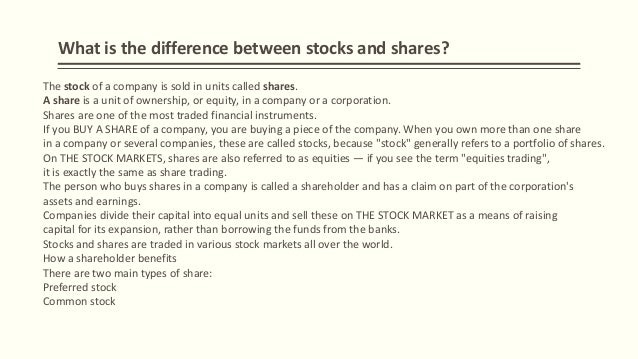'The Cambridge IGCSE Business Studies is accepted by universities and employers as proof of an understanding of business concepts and techniques across a range of different businesses. Successful Cambridge IGCSE Business Studies Learners will be able to appreciate the role of people in business.' The Cambridge IGCSE Business Studies syllabus develops learners’ understanding of business activity in the public and private sectors, and the importance of innovation and change. Learners find out how the major types of business organisation are established, financed. IGCSE Business Studies 0450. 1 Understanding business activity; 2 People in business; 3 Marketing; 4 Operations management; 5 Financial information and decisions; 6 External influences on business activity; IGCSE Chemistry 0620. 1 The particulate nature of matter; 2 Experimental techniques; 3 Atoms, elements and compounds; 4 Stoichiometry; 5.
Cambridge IGCSE Business Studies 6.1 Government economic objectives and policies


6.1.1 How government control over the economy affects business activity
Main government economic objectives
- Low inflation
- Low unemployment
- Economic growth (increasing GDP)
- Balance of payments
Objective: Low Inflation
Inflation – An increase in the general price level of goods and services in an economy.
Problems with high inflation
- Reduce value of wages – People are not able to buy as many goods and services as before.
- Reduced international competitiveness – Prices of goods will become higher than that of other countries resulting in higher imports of foreign products. This reduces jobs in the country as less locally produced products are produced and sold.
- Reduced living standards – Businesses are unlikely to expand resulting in fewer jobs, lowering living standards.
Objective: Low Unemployment
Unemployment – Occurs when people who are willing and able to work can’t find a job.
Problems with high unemployment
- Loss of output – Unemployed people do not produce goods and services.
- Increased costs for the government – The government will have to spend more on unemployment benefits (money given to unemployed people).
Objective: Economic Growth
Gross Domestic Product (GDP) – The total value of all goods and services produced in a country in one year.
Economic Growth = Increase in GDP
Problems with no economic growth
- Unemployment – If total value of goods and services produced falls, there may be less workers which mean fewer jobs.
- Lower living standards – Fewer jobs means less income so people can afford fewer goods and services.
- Low business expansion – Businesses are less likely to expand since people in the country have less money to spend on goods and services.
Igcse Business Studies Notes Pdf Download
Business Cycle
Growth: Rising GDP since more goods and services are being produced, unemployment falls, high living standards.
Boom: Too much spending in the economy, prices rise too quickly resulting in high costs for businesses.
Recession: Low levels of spending in the economy, less goods and services demanded and produced (GDP falls), unemployment rises.
Slump: A major recession. High levels of unemployment, and many businesses fail.
Objective: Balance of payments
Balance of payments – Difference between a country’s exports and imports
Imports – goods and services bought from another country
Export – goods and services sold to another country
Balance of payment surplus: value of a country’s exports is higher than the value of the country’s imports.

Balance of payment deficit: value of a country’s exports is lower than the value of the country’s imports.
Main Government Economic Policies
- Fiscal Policy (changing tax rates and government spending)
- Monetary Policy (changing interest rates)
- Supply-side policies (improving the production capacity of the economy)
Fiscal Policy
Fiscal policy – When the government changes the tax rate or level of government spending.
Governments spend money on various projects in the country. Examples include building schools, hospitals, public transportation etc.. Money to fund these projects are collected through tax.

Direct Tax – Taxes on income and wealth, paid directly to the government
- Income tax – Tax on people’s incomes.
Higher income tax lowers people’s disposable income which leads to less spending on goods and services. - Corporate/Profit/Business tax – Tax on business’ profits.
Lower retained profits for businesses leading to fewer businesses expanding.
How businesses can react to high income tax
Businesses can lower price of products or produce cheaper products that people can afford. However, this may result in lower profits for the business and potentially damage the brand image.
Indirect Tax– Tax on spending to buy goods and services paid indirectly to the government.
- Value Added Tax (VAT) – Tax on goods and services.
Results in fewer sales of the good / service with VAT
- Import Tariff – Tax on imported goods.
Benefits local businesses if tariff placed on foreign competitor’s products.
Increases costs for local businesses that imports foreign products/supplies.
- Import Quota – Physical limit to the quantity of a product that can be imported.
How businessesreact to import tariff
Businesses can purchase supplies from local suppliers instead of importing them. However, local supplies may be lower quality -> Impacts brand image.
Government Spending – The government can increase economic growth by spending on public sector projects e.g. education, healthcare, transportation.
Example) If the government invests in a new hospital, construction firms, medical equipment manufacturers will sell more goods and services.
Monetary policy
Monetary policy – When the government / central bank changes the interest rate.
Cie Igcse Business Studies Notes
How changing interest rates impacts businesses

- Fewer business expansions – As firms are less likely to borrow money from the bank to expand due to high interest rates.
- Lower retained profits for firms – As firms have to repay high interests from loans they borrowed.
- Lower demand for goods and services – As consumers have less money to spend after paying back high interest rates or Consumers want to save more as they get high interest.
- Exchange rate appreciation – High interest rates will attract foreign savers to save money in the country’s banks. This requires them to exchange their foreign currency to the country’s currency, resulting in an exchange rate appreciation for the country’s currency. = Imported goods become cheaper but exports more expensive.
Exchange rate appreciation – Rise in value of a currency compared to other currencies.
How businesses can react to high interest rates
Delay or reduce future expansion. Focus on using internal source of finance e.g. Retained profits, selling existing assets. However, this could limit future growth.
Igcse Business Studies Notes Znotes
Supply Side Policies
Supply side policies – Policies that focus on increasing the productive capacity of an economy. (Make an economy more efficient and able to produce more goods and services)
Igcse Business Studies Notes 2020 Pdf
- Privatisation – Government sells a public sector business to the private sector to increase efficiency
- Improve training and education – Government provides education/training for the country’s workers to improve skills and make the workforce more productive.
- Increase competition – Encourage fair competition between businesses to increase efficiency.